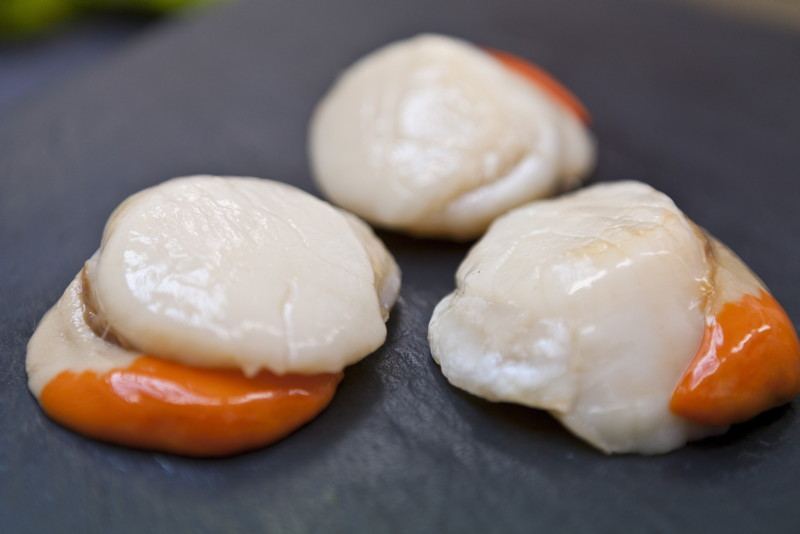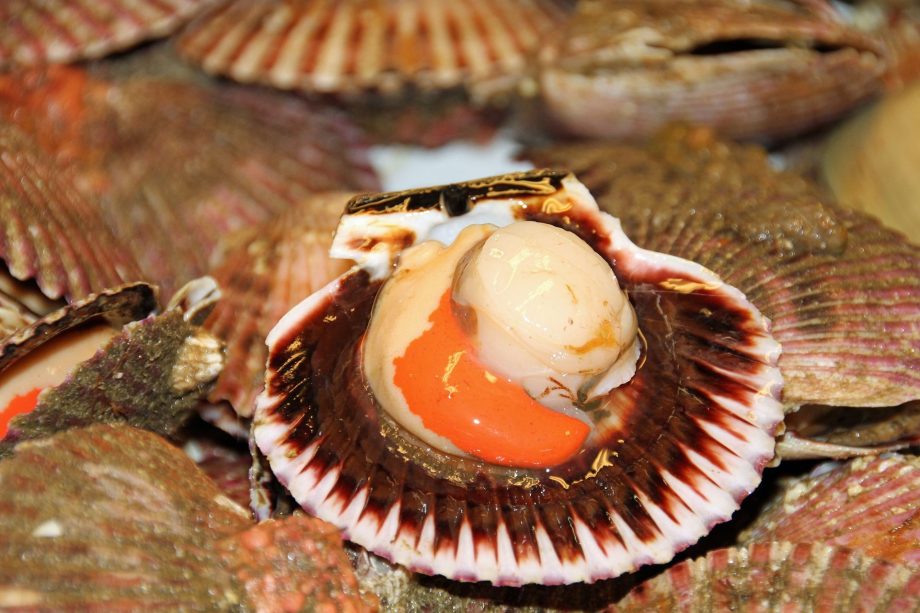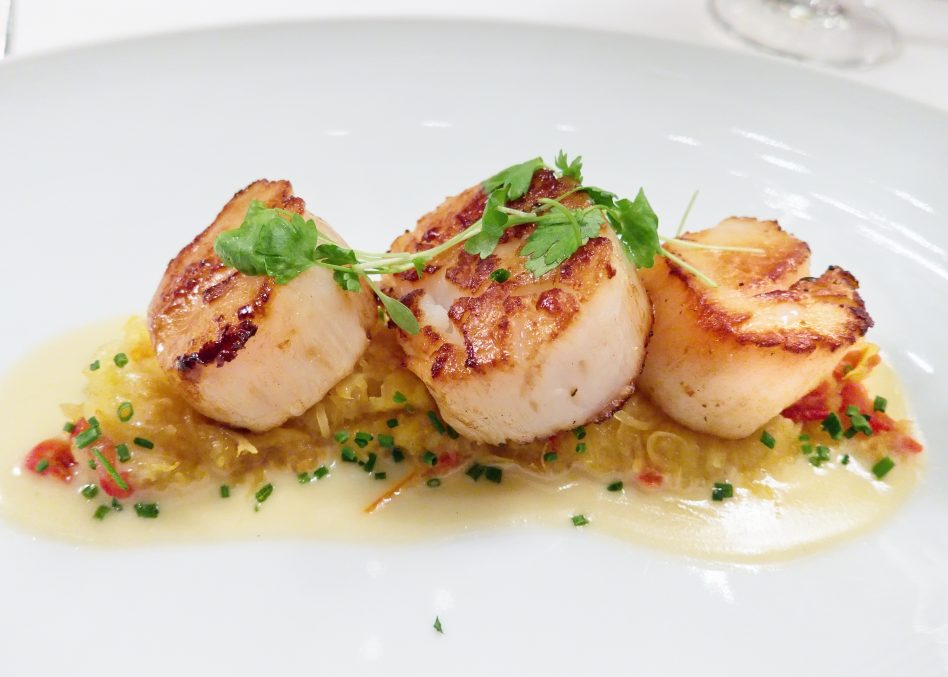Today we answer a few of the most frequent questions we receive about scallops. If there is anything you would like to know that we have not covered here, don’t hesitate to get in touch!
What are the best months to eat scallops?
Some people believe that shellfish should only be eaten during months with an R. Because of high levels of quality control, the scallops we sell will always be fresh and delicious, so you can enjoy scallops all year long. Generally speaking, King scallops are at their best from October to March and Queen scallops from December to February and June to August.
What is the orange part of the scallop?
For those not familiar with scallops, you may wonder what the orange part is, as it’s sometimes removed from the meat. This orange bit is called the roe, or coral.
Is scallop roe edible?
Even if the roe is often removed from scallops, it’s actually edible. Whether you want to eat it or not is just matter of taste. The roe has a slightly stronger taste which complements well the richness of the scallop meat, but it’s up to your personal preference.
How can I prepare scallops in the shell?
Our scallops are already prepared, but if you’re buying whole shells, we have a handy guide for a simple technique you can use to remove the scallop from its shell.
Fancy trying our fresh products? Enter your email below and we’ll send you an exclusive 15% off discount code!
How long can I keep scallops?
Scallops are best eaten on the day but you can keep them in your fridge for up to two days. If you want to keep scallops longer, store them in your freezer. Defrost carefully before cooking.
How should I cook scallops?
Scallops require minimal cooking and can either be steamed, pan-fried, baked or poached. Pan-frying is the most common method and only requires a few minutes. A general rule of thumb is to minutes on one side and anything from 1 seconds to 2 minutes on the other. Aim for a caramelised crust and an almost translucent centre. A perfectly cooked scallop will be springy and will become tough and rubbery if overcooked.



